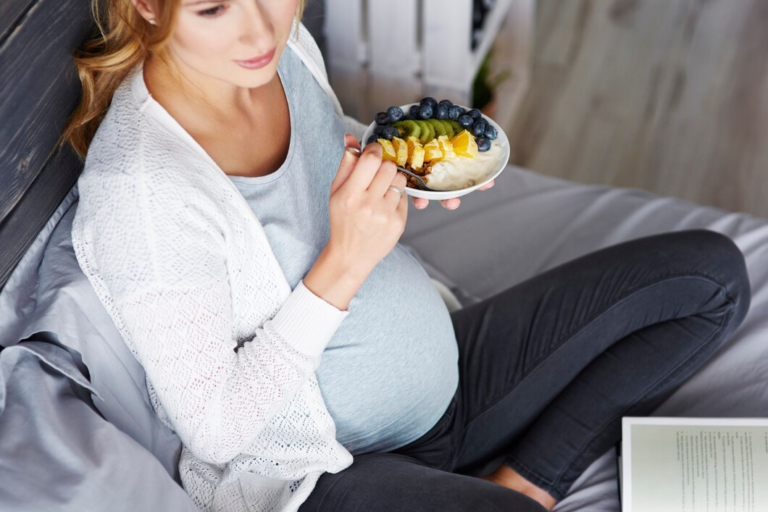Pregnancy is a time when nutrition takes center stage, and what you eat can have a significant impact on both your health and your baby’s development. While fish is often praised for its omega-3 fatty acids and high-quality protein, not all fish are safe for pregnant women. Some types contain high levels of mercury and other contaminants that can harm fetal development. In this article, we’ll explore 5 fish that pregnant women should avoid and suggest safer alternatives to ensure a healthy pregnancy.
Why Some Fish Are Unsafe During Pregnancy

Fish can be a great source of essential nutrients like omega-3s, which support brain and eye development in babies. However, certain fish contain high levels of mercury, a toxic metal that can damage the nervous system of a developing fetus. Other concerns include PCBs (polychlorinated biphenyls) and environmental pollutants that can accumulate in fish.
The U.S. Food and Drug Administration (FDA) and the Environmental Protection Agency (EPA) recommend that pregnant women avoid certain fish and limit others to 2-3 servings per week of low-mercury options.
● See also: Beauty Tips for Pregnant Women: Essential Care During Pregnancy
5 Fish to Avoid During Pregnancy

Here are the top 5 fish that pregnant women should avoid due to their high mercury content:
1. Shark
- Why Avoid? Shark is a large predator that accumulates high levels of mercury in its tissues.
- Risk: Mercury exposure can harm the baby’s brain and nervous system development.
2. Swordfish
- Why Avoid? Swordfish is another large, long-lived fish with high mercury levels.
- Risk: Consuming swordfish during pregnancy can lead to developmental delays and cognitive issues.
3. King Mackerel
- Why Avoid? King mackerel is known for its high mercury content, especially in larger, older fish.
- Risk: Mercury can cross the placenta and affect the baby’s growing brain.
4. Tilefish (Gulf of Mexico)
- Why Avoid? Tilefish from the Gulf of Mexico has some of the highest mercury levels among fish.
- Risk: High mercury exposure can lead to vision, hearing, and coordination problems in babies.
5. Bigeye Tuna
- Why Avoid? Bigeye tuna, often used in sushi, contains higher mercury levels than other tuna varieties.
- Risk: Mercury can interfere with the development of the baby’s nervous system.

Prenatal Vitamins with DHA
Olly The Essential Prenatal Gummy Multivitamin, 30 Day Supply ( Gummies), Sweet, Folic Acid, Vitamin D, Omega 3 DHA, Chewable Supplement, White Citrus, 60 Count (Pack of 1)
Supports baby’s brain and eye development.
Safer Fish Options for Pregnant Women

While it’s important to avoid high-mercury fish, many low-mercury options are safe and nutritious for pregnant women. These include:
- Salmon (wild-caught or farmed).
- Shrimp.
- Pollock.
- Catfish.
- Canned light tuna (limit to 2-3 servings per week).
These fish are rich in omega-3s, protein, and other essential nutrients without the risks associated with high mercury levels.
Tips for Safe Fish Consumption During Pregnancy

Here are some guidelines to help you enjoy fish safely during pregnancy:
1. Choose Low-Mercury Fish
- Stick to fish that are lower on the food chain, as they tend to have less mercury.
2. Limit Portions
- Even with low-mercury fish, limit your intake to 2-3 servings (8-12 ounces) per week.
3. Avoid Raw or Undercooked Fish
- Raw fish, such as sushi or sashimi, can carry harmful bacteria or parasites.
4. Check Local Advisories
- If you eat fish caught locally, check for any advisories about mercury or pollution levels in your area.
5. Cook Fish Thoroughly
- Ensure fish is cooked to an internal temperature of 145°F (63°C) to kill any harmful pathogens.

Mercury-Free Omega-3 Fish Oil
Nordic Naturals Ultimate Omega, Lemon Flavor – 60 Soft Gels – 1280 mg Omega-3 – High-Potency Omega-3 Fish Oil Supplement with EPA & DHA – Promotes Brain & Heart Health – Non-GMO – 30 Servings
Safe alternative for essential fatty acids.
Frequently Asked Questions
1. Can I eat canned tuna during pregnancy?
Yes, but opt for canned light tuna and limit it to 2-3 servings per week. Avoid albacore (white) tuna, which has higher mercury levels.
2. Are there any benefits to eating fish during pregnancy?
Absolutely! Fish is a great source of omega-3 fatty acids, which support your baby’s brain and eye development.
3. What if I accidentally ate a high-mercury fish?
One serving is unlikely to cause harm, but avoid consuming high-mercury fish in the future. Consult your doctor if you’re concerned.
Conclusion

While fish can be a nutritious part of a pregnancy diet, it’s crucial to avoid high-mercury varieties like shark, swordfish, king mackerel, tilefish, and bigeye tuna. By choosing safer options like salmon, shrimp, and pollock, you can enjoy the benefits of fish without the risks. Always follow guidelines for safe consumption and consult your healthcare provider if you have any concerns.
If you found this article helpful, share it with other expecting mothers who might benefit from these tips. And don’t forget to explore our other articles on pregnancy nutrition and wellness for more guidance!
Eating the right foods during pregnancy is essential for your baby’s development, but did you know that some types of fish can be harmful? 🐟⚠️ Avoiding high-mercury fish and other risky seafood is crucial for your health and your baby’s well-being. Learn which fish to avoid and discover safe, nutritious alternatives to keep you and your little one thriving!

Safe Canned Tuna (Low Mercury, BPA-Free)
Safe Catch Wild Ahi Yellowfin Tuna Fish Canned, Wild Caught, Lowest Mercury, Lean Protein, Omega 3, Gluten-Free, Kosher, Pack of 6.
A pregnancy-friendly seafood option.

Seaweed Snacks (Iodine-Rich)
J-BASKET Korean Seaweed Snack, Original, 0.52 Oz, Pack of 10





